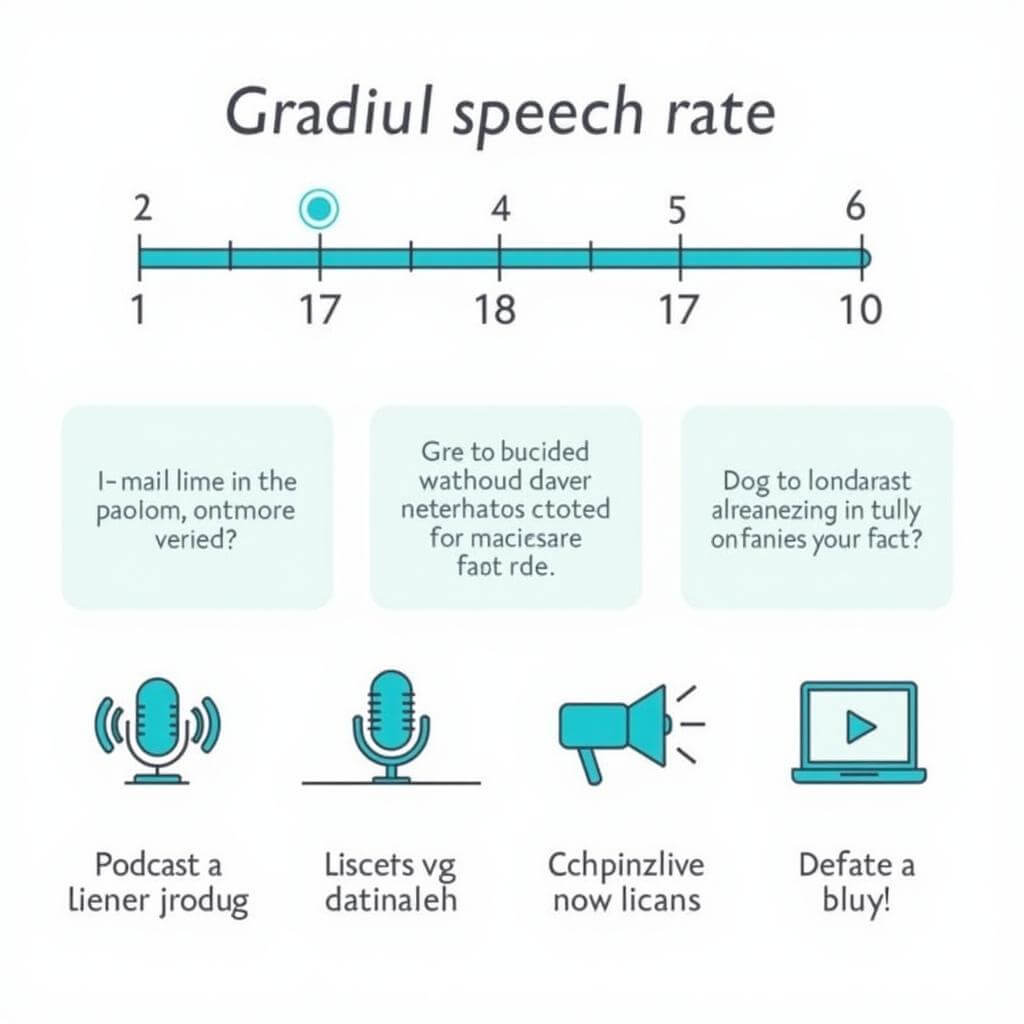In the IELTS Listening test, one of the most challenging aspects is understanding fast speakers. Many test-takers struggle to keep up with the rapid pace, often missing crucial information. This guide will provide you with effective strategies on how to improve your IELTS listening skills for faster speakers, helping you boost your score and confidence.
Understanding the Challenge of Fast Speech in IELTS Listening
Fast speech in IELTS Listening can be intimidating, but it’s a common feature designed to test your real-world listening abilities. Native English speakers often talk quickly, especially in informal situations or when discussing familiar topics. By mastering techniques to handle rapid speech, you’ll not only excel in the test but also improve your overall English listening skills.
Why Fast Speech is Challenging
- Reduced pronunciation clarity
- Blended sounds between words
- Limited processing time for listeners
- Increased cognitive load
Key Strategies to Improve Your IELTS Listening for Fast Speakers
1. Familiarize Yourself with Different Accents
IELTS Listening tests feature various English accents, including British, American, Australian, and others. Expose yourself to these accents regularly:
- Watch TV shows and movies from different English-speaking countries
- Listen to podcasts with diverse speakers
- Use accent-specific IELTS practice materials
“Accent familiarity is crucial. The more you expose yourself to various English accents, the less likely you are to be caught off guard during the test,” says Dr. Emma Thompson, IELTS expert and linguist.
2. Practice Active Listening
Active listening involves fully concentrating on the speaker and engaging with the content:
- Focus on the main ideas rather than every single word
- Anticipate what the speaker might say next
- Take quick notes of key points
how to improve speed without losing accuracy
3. Develop Your Prediction Skills
Prediction is a powerful tool in IELTS Listening, especially with fast speakers:
- Read the questions carefully before the audio begins
- Underline key words in the questions
- Think about possible answers and related vocabulary
- Listen for context clues that might indicate the answer
4. Expand Your Vocabulary
A rich vocabulary can significantly improve your ability to understand fast speech:
- Learn common IELTS topics and their associated vocabulary
- Study collocations and idiomatic expressions
- Use context to guess word meaning when encountering unfamiliar terms
5. Practice with Increasing Speech Rates
Gradually expose yourself to faster speech:
- Start with normal-speed listening materials
- Use audio players that allow speed adjustment to incrementally increase playback speed
- Practice with authentic fast-speech materials, such as news broadcasts or debate shows

6. Improve Your Note-Taking Skills
Effective note-taking is crucial when dealing with fast speakers:
- Develop a personal shorthand system
- Focus on recording key information rather than full sentences
- Practice note-taking while listening to fast speech
7. Train Your Ear with Shadowing Exercises
Shadowing involves repeating what you hear immediately after the speaker:
- Choose a short audio clip with a fast speaker
- Listen and repeat simultaneously, mimicking the speaker’s pace and intonation
- Gradually increase the length and complexity of the audio
This technique helps you improve pronunciation for higher scores and trains your brain to process fast speech more efficiently.
Applying These Strategies in the IELTS Listening Test
During the actual test, remember to:
- Stay calm and focused
- Read questions ahead of time to predict content
- Listen for signpost words that indicate important information
- Use the given time between sections to prepare for the next part
“The key to success in IELTS Listening is not just about understanding every word, but about capturing the essential information efficiently,” advises Professor Michael Chen, IELTS examiner and language coach.
how to understand accents in IELTS listening
Conclusion
Improving your IELTS listening skills for faster speakers is a gradual process that requires consistent practice and dedication. By implementing these strategies and continuously exposing yourself to fast English speech, you’ll develop the skills necessary to excel in the IELTS Listening test. Remember, the goal is not just to pass the test, but to enhance your overall English listening comprehension, which will serve you well beyond the exam.
strategies for improving overall fluency
FAQs
-
How fast do speakers talk in the IELTS Listening test?
The speed varies, but it generally reflects natural, conversational pace. Some parts may feature faster speech to test your ability to keep up with native speakers. -
Can I ask the examiner to slow down the audio?
No, the audio is standardized and cannot be adjusted during the test. -
Is it better to focus on every word or just the main ideas?
Focus on capturing the main ideas and key details. Trying to understand every single word can lead to missing important information. -
How can I improve my concentration for fast speech?
Regular practice, good sleep, and staying hydrated can help improve concentration. Also, try mindfulness exercises to enhance your focus. -
Are there specific IELTS Listening practice materials for fast speech?
Yes, many IELTS preparation books and online resources offer practice tests with varying speech rates, including fast speakers. -
How long does it typically take to get comfortable with fast speech in IELTS Listening?
It varies for each individual, but with consistent practice, most test-takers see significant improvement within 4-6 weeks. -
Should I use the same strategies for all parts of the IELTS Listening test?
While the core strategies remain the same, you may need to adapt slightly for different sections, especially for the faster-paced parts like Section 3 and 4.